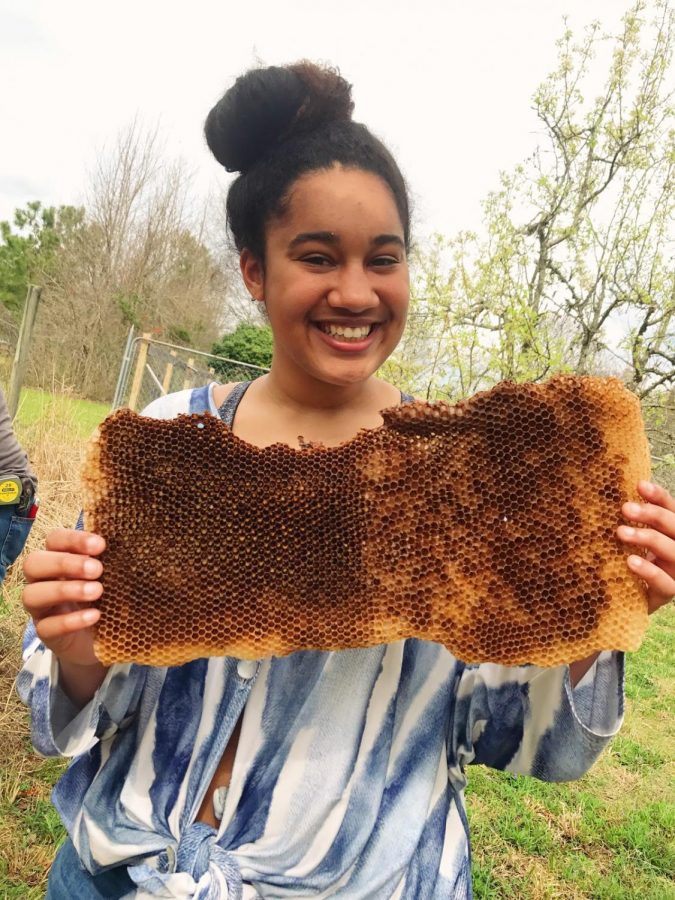#SaveTheBees movement matters to planet Earth, students
Everyday people can take steps to protect pollinators
Lexi Thomas holds some honeycomb.
April 15, 2018
Losing bees would sting humans harder than the buzzers ever could. Honey bees perform about 80% of the world’s pollination, but due to humans’ harmful tendencies, these hard working insects continue to die out one by one.
Bee advocate and junior Savannah Bowers based her Girl Scout Gold project on saving honey bees and increasing pollination. During the project’s duration, she worked hands on with beekeepers and learned just how much of a necessity the buzzing bugs actually are.
“Honey bee colonies have been dying at a steadily increasing rate over the past few decades,” said Savannah. “This is very concerning because hundreds of crops depend on pollination by honey bees, not to mention hundreds of other uses for bee products.”
According to sos.bees.org, “Pollinators are under threat because of widespread pesticide use, climate change, the emergence of foreign pests, diseases and habitat loss.”
This insect epidemic even affects farms as close as Chesapeake and Pungo.
“My Uncle owns a farm on Indian River Road. Just a few months ago his bee colony swarmed away and never came back. They were probably killed by some nearby farms’ pesticides,” said sophomore Lexi Thomas. “He bought a new hive, but there’s a very possible chance it could happen again.”
Even though now it is a common fact that bees are dying at an alarming rate, many act indifferent to the epidemic due to the insect’s infamous reputation.
“Saving the bees is a tricky subject because everyone just takes them for granted,” said freshman Vu Giang. “If people were more educated about how important bees are, and stopped seeing them as buzzing stinging nuisances, I definitely think they wouldn’t be endangered. Bees mind their own beeswax; If you don’t mess with them, they won’t mess with you.”
With every step backwards people takes in protecting pollinators, individuals can take a step forward in regaining the bee population with just a few simple acts.
“Everyone can help honey bees by buying honey from local beekeepers, planting pollinator friendly gardens, and buying organic,” said Savannah.


